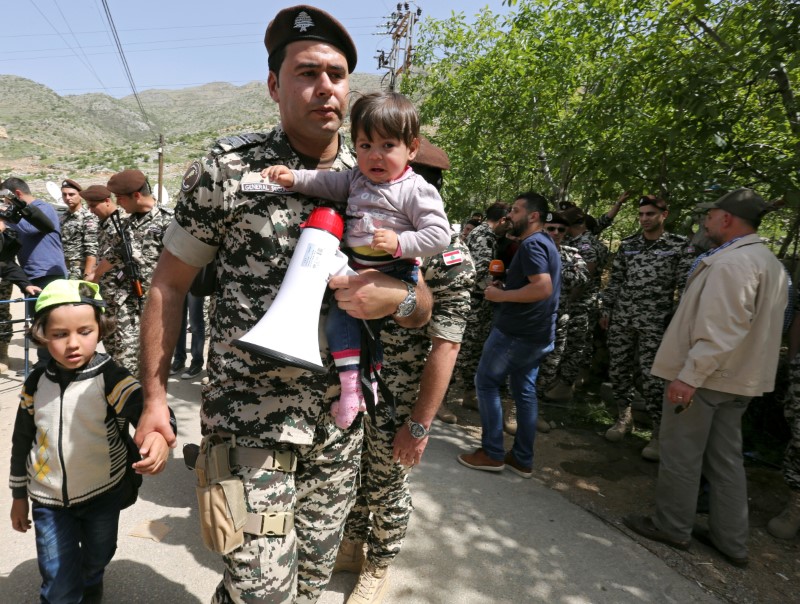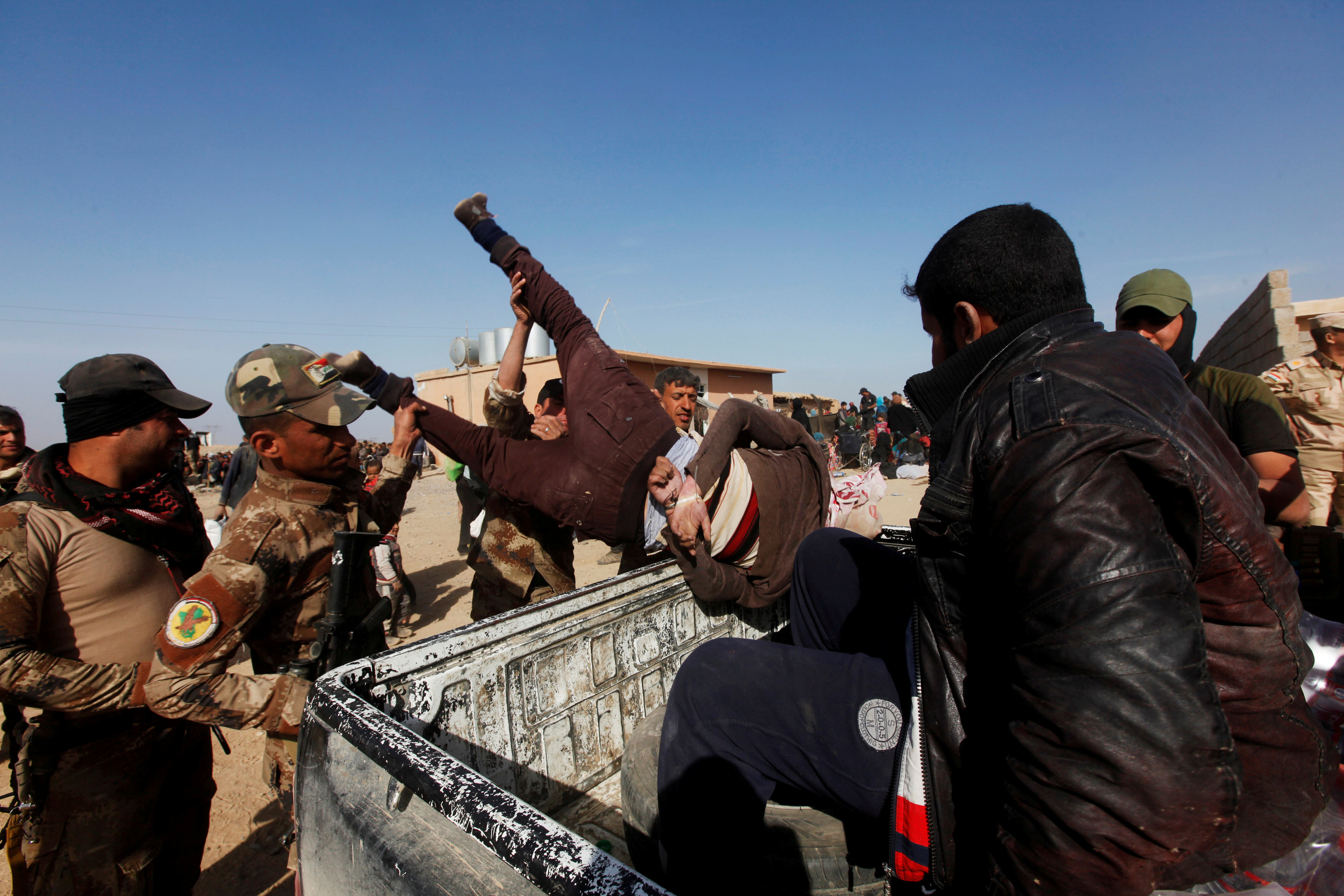
Prime Minister Hariri resigns as Lebanon crisis turns violent
BEIRUT (Reuters) – Saad al-Hariri resigned as Lebanon’s prime minister on Tuesday, declaring he had hit a “dead end” in trying to resolve a crisis unleashed by huge protests against the ruling elite and plunging the country deeper into turmoil.
The move by the leading Sunni politician points to rising political tensions that may complicate the formation of a new government able to tackle Lebanon’s worst economic crisis since its 1975-90 civil war.
The resignation of Hariri, who has been traditionally backed by the West and Sunni Gulf Arab allies, raises the stakes and pushes Lebanon into an unpredictable cycle. Lebanon could end up further under the sway of the Iranian-backed Hezbollah, making it even harder to attract badly-needed foreign investment.
It also defies Hezbollah, which had wanted him to stay on. Hariri is seen as the focal point for Western and Gulf Arab aid to Lebanon, which is in dire need of financial support promised by these allies.
Hariri addressed the nation after a mob loyal to the Shi’ite Muslim Hezbollah and Amal movements attacked and destroyed a protest camp set up by anti-government demonstrators in Beirut.
It was the most serious strife on the streets of Beirut since 2008, when Hezbollah fighters seized control of the capital in a brief eruption of armed conflict with Lebanese adversaries loyal to Hariri and his allies.
Lebanon has been paralyzed by the unprecedented wave of protests against the rampant corruption of the political class.
“For 13 days the Lebanese people have waited for a decision for a political solution that stops the deterioration (of the economy). And I have tried, during this period, to find a way out, through which to listen to the voice of the people,” Hariri said.
“It is time for us to have a big shock to face the crisis,” he said. “To all partners in political life, our responsibility today is how we protect Lebanon and revive its economy.”
President Michel Aoun, a political ally of Hezbollah, could now either accept Hariri’s resignation and begin consultations toward forming a new government, or ask him to rethink.
It took nine months to form the Hariri coalition cabinet that took office in January.
Some demonstrators vowed to stay in the street.
Protester Tarek Hijazi said the resignation was “a first step in building a patriotic democratic country, on the road to achieving the demands of the Oct. 17 uprising”.
The turmoil has worsened Lebanon’s acute economic crisis, with financial strains leading to a scarcity of hard currency and a weakening of the pegged Lebanese pound. Lebanese government bonds tumbled on the turmoil.
TENTS ON FIRE
On the streets of Beirut, black-clad men wielding sticks and pipes attacked the protest camp that has been the focal point of countrywide rallies against the elite.
Sayyed Hassan Nasrallah, head of the heavily armed, Iran-backed Hezbollah, said last week that roads closed by protesters should be reopened and suggested the demonstrators were financed by its foreign enemies and implementing their agenda.
Smoke rose as some of the protester tents were set ablaze by Hezbollah and Amal supporters, who earlier fanned out in the downtown area of the capital shouting “Shia, Shia” in reference to themselves and cursing anti-government demonstrators.
“With our blood and lives we offer ourselves as a sacrifice for you Nabih!” they chanted in reference to Parliament Speaker Nabih Berri, head of the Amal Movement. “We heed your call, we heed your call, Nasrallah!” they chanted.
Security forces did not initially intervene to stop the assault, in which protesters were hit with sticks and were seen appealing for help as they ran, witnesses said. Tear gas was eventually fired to disperse the crowds.
Hariri did not refer to the violence in his address but urged all Lebanese to “protect civil peace and prevent economic deterioration, before anything else”.
France, which has supported Hariri, called on all Lebanese to help guarantee national unity.
LEBANESE POUND UNDER PRESSURE
Lebanon’s allies last year pledged $11 billion in financing to help it revive its economy, conditional on reforms that Hariri’s coalition government has largely failed to implement.
But there has been no sign of a rush to help.
A senior U.S. State Department official said last week this was not a situation where the Lebanese government should necessarily get a bailout, saying they should reform first.
Banks were closed for a 10th day along with schools and businesses.
Hariri last week sought to defuse popular discontent through a batch of reform measures agreed with other groups in his coalition government, including Hezbollah, to – among other things – tackle corruption and long-delayed economic reforms.
But with no immediate steps toward enacting these steps, they did not placate the demonstrators.
Central bank governor Riad Salameh called on Monday for a solution to the crisis in just days to restore confidence and avoid a future economic meltdown.
A black market for U.S. dollars has emerged in the last month or so. Three foreign currency dealers said a dollar cost 1,800 pounds on Tuesday, weakening from levels of 1,700 and 1,740 cited on Monday.
The official pegged rate is 1,507.5 pounds to the dollar.
“Even if the protesters leave the streets the real problem facing them is what they are going to do with the devaluation of the pound,” said Toufic Gaspard, an economist who has worked as an adviser to the IMF and to the Lebanese finance minister.
“A very large majority of the Lebanese income is in the Lebanese pound, their savings are in the Lebanese pound and their pension is in Lebanese, and it is certain it has already started to devalue,” he said.
(Reporting by Eric Knecht, Laila Bassam, Ellen Francis, Tom Perry, Lisa Barrington, Samia Nakhoul and Reuters TV; Writing by Tom Perry; Editing by Mark Heinrich)









